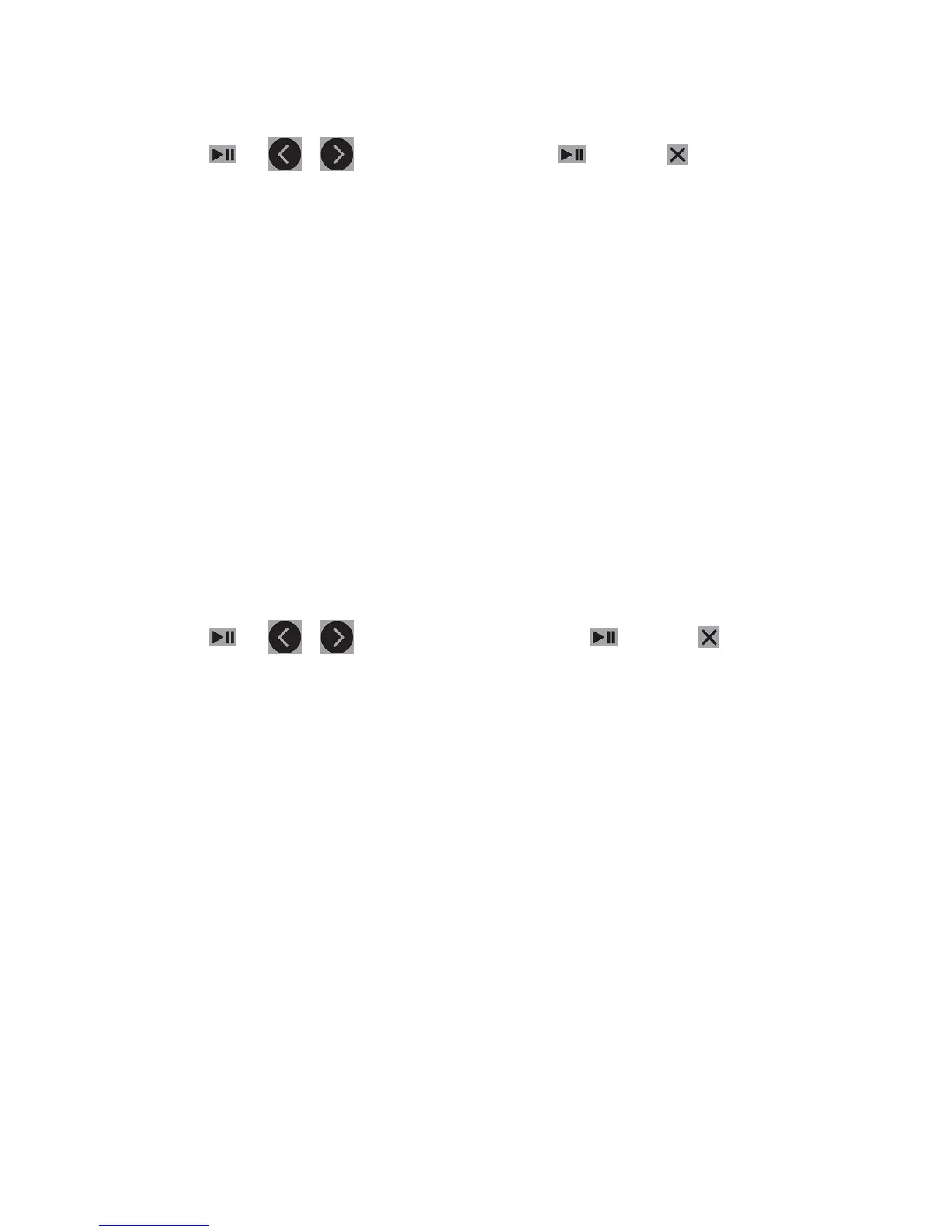The cutter stops during the loading procedure or while it is cutting as soon as the rear sensor detects the end of
the substrate.
Press . Use or to turn the sensor On or O. Press to conrm or to cancel. The sensor is
On by default.
Alignment mode
The OPOS settings are explained in detail in the previous chapter, except for the alignment mode. There are three
additional alignment methods available: X alignment, XY alignment, and XY adjustment.
These alignment methods can be used if the combination of marker color and substrate color cannot be read by
the OPOS sensor.
They require you to register markers manually, using the cutter’s front panel. Most cutting software can put
these markers around the printed graphic automatically.
●
X alignment compensates for errors in substrate alignment, and therefore graphic rotation, by rotating the
graphic’s contour. This alignment method requires you to specify the origin and one point along the X axis.
Distance parameters are not required. X alignment is the easiest alignment method.
●
XY alignment compensates for errors in graphic rotation and skew. Skew errors occur when the graphic’s X
and Y axes are not perpendicular. This alignment method requires you to specify the origin and one point
along both the X and Y axes.
●
XY adjustment compensates for errors in graphic rotation, skew, and scale. Scale errors occur when the
graphic’s printed size is dierent from the graphic’s original size, as created in the imaging software. X-
distance and Y-distance parameters are required. These parameters dene the distance between the origin
and X-axis point and between the origin and Y-axis point. XY adjustment is the most accurate manual
alignment method.
Press . Use or to change the alignment method. Press to conrm or to cancel. The
default alignment method is OPOS.
40 Chapter 5 Detailed operation of the cutter ENWW
